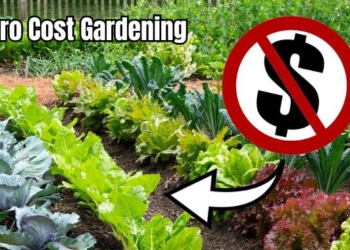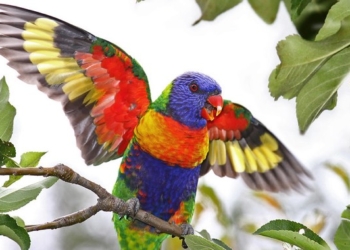
Dr. Joseph Mercola | Waking Times
Have you ever wanted to grow your own food but didn’t know where to start? Access to fresh, healthy food is a human right, and one of the best ways to exercise that right is to grow your own food. You don’t have to be a farmer or have a background in agriculture. You don’t even have to own your own land.
The industrialization of our chemical-dependent food system has caused problems that are nearly insurmountable, including soil degradation, water pollution, loss of biodiversity, a decline in public health and climate change. But food production doesn’t have to be globalized, industrialized or even monetized.
That’s the message environmental activist and humanitarian Rob Greenfield wants to convey in a new project in which he aims to grow and forage 100% of his own food for one year. The challenge is featured in a two-part film produced by Peter Kanaris of GreenDreamsFL titled, “Growing & Foraging 100% of His Food WITHOUT LAND OF HIS OWN: 1-Year Challenge w/ Rob Greenfield.”
The film, set in Orlando, Florida, shows Greenfield 138 days into his yearlong project of growing and foraging all of his own food, and some of his own medicine, too. The best part? Greenfield doesn’t own any land. He’s growing food in six privately owned yards and a handful of other spots that total less than 4,000 square feet of space.
Greenfield did not go to school for horticulture, either. And, he doesn’t have any experience in agriculture. He does possess a certificate in permaculture, but says it never taught him how to actually plant anything. For instance, he had to learn how much sun is needed to grow carrots, how much water kale requires and what time of year is best to plant certain plants.
Growing and foraging 100% of his own food
Despite his lack of experience, he learned how to successfully grow a variety of food and herbs including green onions, carrots, beets, celery, spinach, kale, cabbage, tomatoes, garlic, cilantro and dill. Remarkably, in less than one year (about 10 months), Greenfield was able to grow 100% of his own food.
But it gets better. He’s growing so much food that his project doubles as a community garden, where locals can sample fresh, locally grown produce, and leave feeling inspired to try and grow some of their own.
“At least that’s my hope,” says Greenfield in the film. “I took on the challenge to not just feed myself, but to inspire others to try and do the same. That could mean planting your first tomato plant, starting an herb garden on your apartment balcony or turning your front or backyard into a full-on garden. Growing your own food is something we all can do.”
In an effort to conserve water, Greenfield uses a drip irrigation system that delivers water directly to the roots of plants. Drip irrigation is one of the most efficient watering systems, as it can reduce water usage by 30% to 70%. Greenfield says he could grow the food without a drip irrigation system, but with all of the different gardens he’s growing, it would add up to 10 hours more per week of labor on top of the 40 to 60 hours he already spends tending to his gardens.
In addition to his gardens, Greenfield also helped plant more than 200 community fruit trees in Orlando, including cherry, peach, mulberry, avocado and loquat trees. The trees are marked with a sign that says: “I am a community fruit tree. Please enjoy my fruit.” The community trees act as a reminder that food can be available outside of the grocery store.
‘Food is a gateway to getting people to rethink everything’
The film shows Greenfield munching on fresh mulberries from one of the community fruit trees he helped plant. “Food is a gateway to getting people to rethink everything,” says Greenfield, adding:
“The idea is to try and get food grown freely all around us. A lot of people when they see food that’s growing free, that’s nutritious and delicious, for the first time, and they realize that it doesn’t have to come from the grocery store, that can be a pretty revolutionary moment.
















